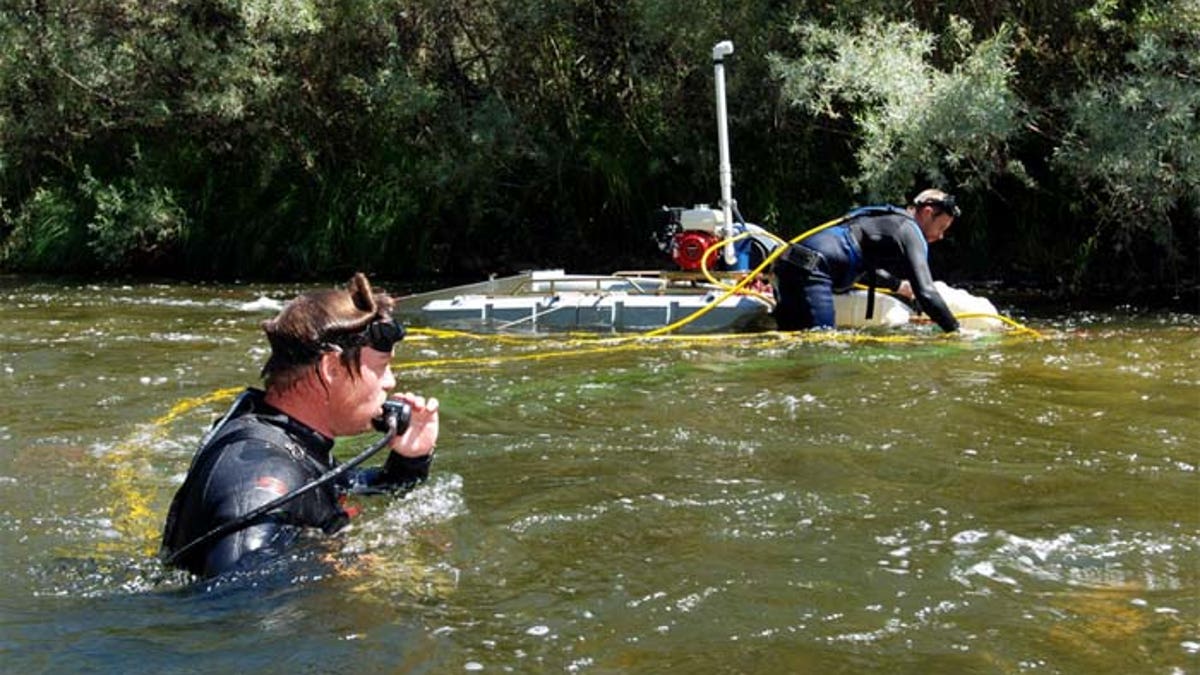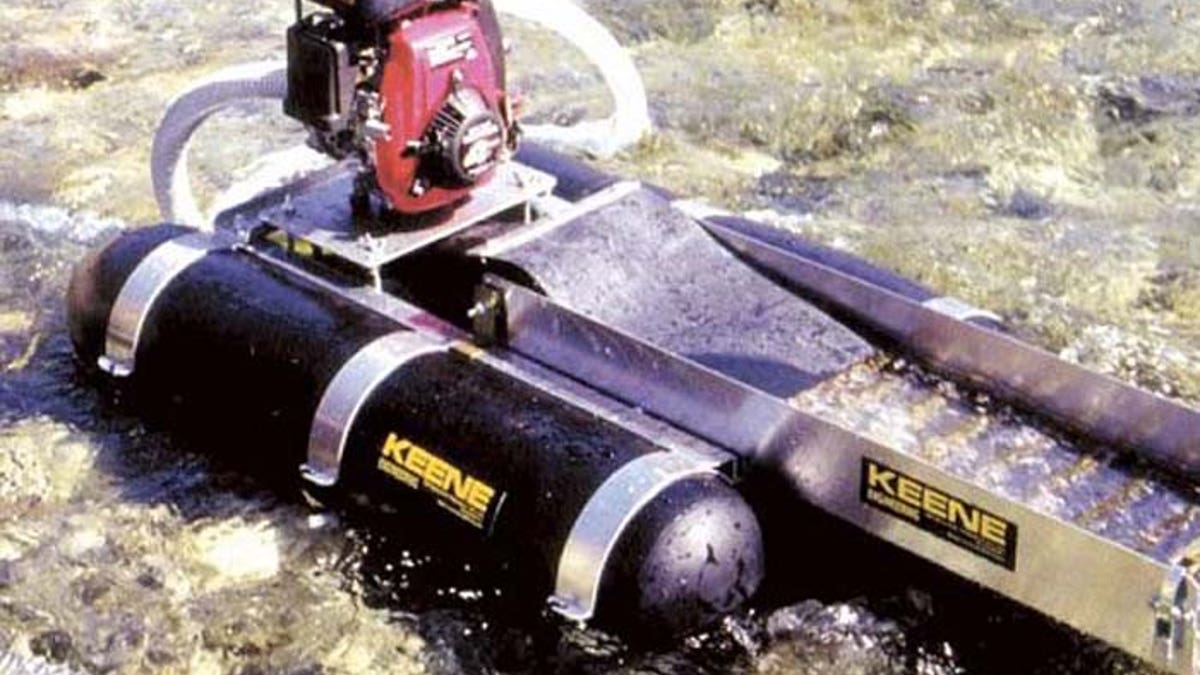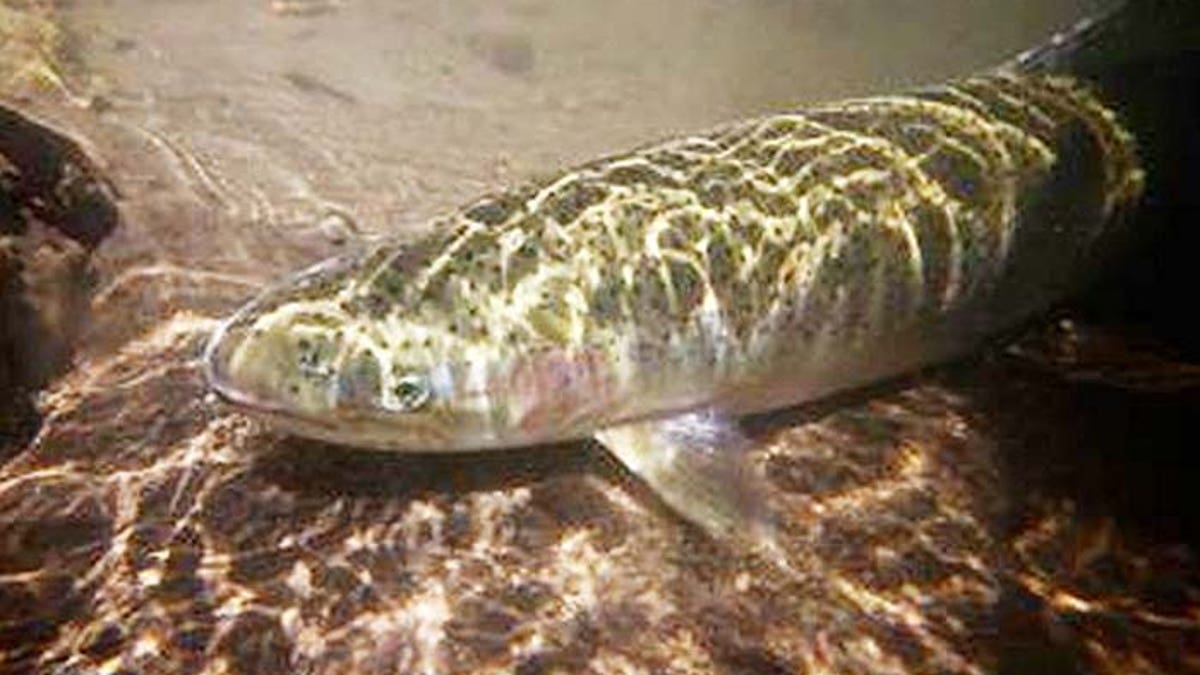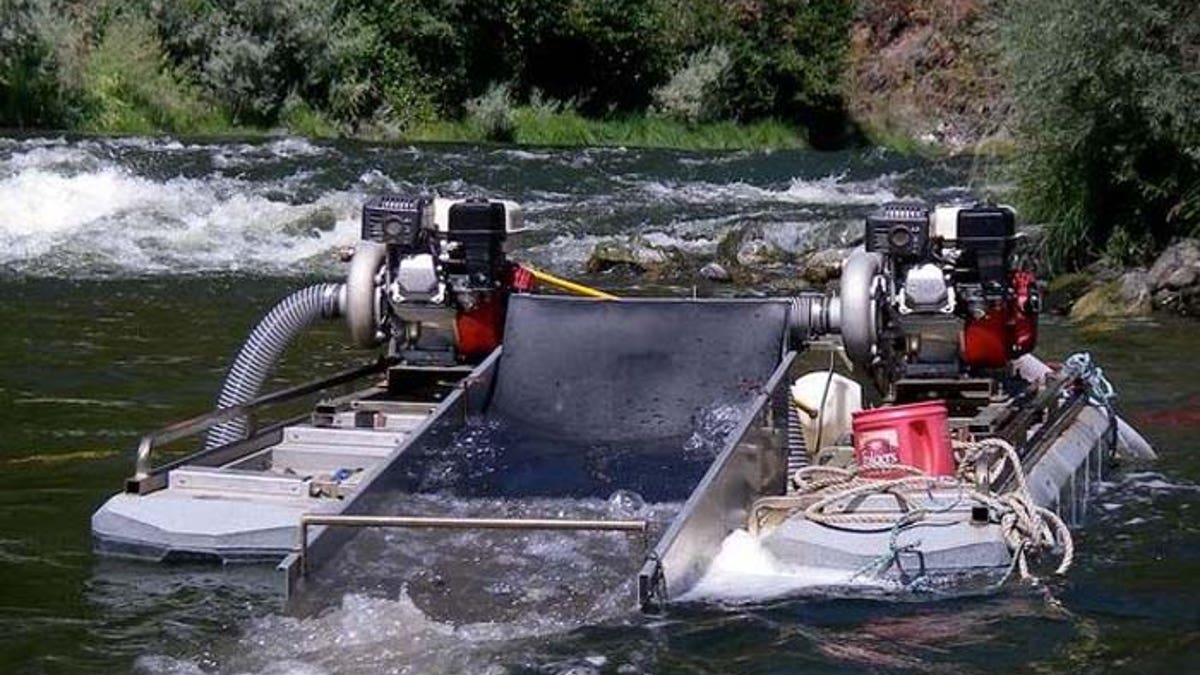
Gold miners say suction dredging is the only effective way of getting gold out of rivers and creeks. (AP)
There’s gold in them there rivers and streams of Oregon, but there are salmon, too – and state officials are on the side of the fish, not the prospectors.
At issue is a technique known as “suction dredging,” in which sediment from waterway beds is sucked up to the surface and mechanically sifted for gold particles carried down from mountain mother lodes. The state is imposing a ban on the practice in the interest of protecting salmon, while miners, who insist in a federal lawsuit that their efforts don’t harm wildlife, say the state lacks the authority to stop them.
“Dredging is important to many small, rural Oregon communities that have suffered a long line of economic attacks based on environmentalist propaganda and outright lies,” James Buchal, an attorney representing the plaintiffs told FoxNews.com. “We trust that the federal court will join every other court that has recognized that states lack power to ban mining on federal land.”
“It is really the only effective way to get the gold.”
Part of the plaintiffs’ argument is that the state does not have jurisdiction to impose a ban on mining on federal property. The lawsuit, filed in federal District Court in Medford on Monday, names the State of Oregon, Attorney General Ellen Rosenblum and former Director of the Oregon Department of State Lands Mary Abrams, and contends the prohibition is pre-empted by at least seven federal laws dating back to the Mining Acts of 1866, and by federal regulations.
Miners have long been able to pay for claims that allow them exclusive mining rights on federally protected rivers and streams, or to hunt for gold on any unclaimed lands. Shannon Poe, of the American Mining Rights Association, said claimants who paid fees to the Bureau of Land Management should not be barred from suction dredging.

The technique involves sucking up sediment from the bed of the creek or river, sifting out gold and spitting the rest back into the water. (Courtesy: American Mining Rights Association)
“It is really the only effective way to get the gold,” said Poe, who owns five dredges and holds claims in five states, including Oregon. “You could still go in with a shovel and a pan, but it wouldn’t be efficient and, of course, the environmental effect would be the same - a non-factor.”
Oregon’s proposed five-year moratorium, set to take effect on Jan. 2, 2016, comes as smaller-scale regulations on suction dredging, imposed in 2013, sunset. Those laws were put in place for two years to give lawmakers time to develop more permanent rules, something that never happened.
While suction dredging on coastal waters, depicted on Discovery Channel’s “Bering Sea Gold,” involves divers who descend to the ocean floor and pump sediment up to crew-manned barges on the surface, most suction dredging taking place in Oregon freshwater bodies involves small machines powered by a lawn mower engine and operated by one or two miners.

Critics say suction dredging disturbs the habitat of salmon. (AP)
Karen Darnell, president of Millennium Diggers and one of the plaintiffs in the suit, said thousands of Oregon families rely on motorized mining methods for their livelihoods. And government revenues from permit fees, income taxes and sales tax on equipment add up to as much as $10 million per year, she told FoxNews.com.
Environmental and wildlife advocates argue suction dredging leaves Oregon taxpayers with huge cleanup bills and disturbs the fish habitat. Critics of the activity also argue that the problem for Oregon was made worse after California banned dredge mining in 2009, prompting more miners to practice the capability in bordering Oregon. Although no suction dredging is allowed while fish are spawning, critics say the damage left endures after prospectors leave.
“Salmon are part of the identity of the Pacific Northwest and are on the decline throughout much of their historic range,” said Forrest English, the Oregon-based program director for environmental activist organization, Rogue Riverkeeper. He said suction dredge mining stirs up mercury in the sediment, alters stream channel structure, degrades gravel and kills fish eggs and small invertebrates.
As it stands, the Oregon Department of Fish & Wildlife lists three species of fish – including Lower Columbia River Coho Salmon – as “endangered” – while six other species such as Chinook Salmon bear the slightly less menacing “threatened” status.

Proponents say the process adds nothing new to the water, and even helps eliminate mercury and lead. (Courtesy: American Mining Rights Association)
Oregon is following the lead of California, where the practice was banned despite claims by proponents like Scott Harn, publisher of Prospecting & Mining Journal, that gold dredging was generating over $100 million per year in the Golden State. He and others claim suction dredging actually improves the fish habitat by providing deeper channels and cooler water, and removing hazards such as lead fishing sinkers.
“There is benefit for all of us in cleaning up our waterways," Harn said, contending that mercury levels have actually risen since California’s tight dredging moratorium came into effect. “The vast majority of suction dredge miners are environmental stewards.”
Representatives for the director of the Department of State Lands and the Oregon Department of Justice declined to comment on the pending litigation.
Poe said he has seen the anti-gold mining movement hurt his industry throughout the west.
“They don’t care a whole lot about the science, or the facts or the truth that conclusively proved suction dredging does not harm fish,” Poe said.








































